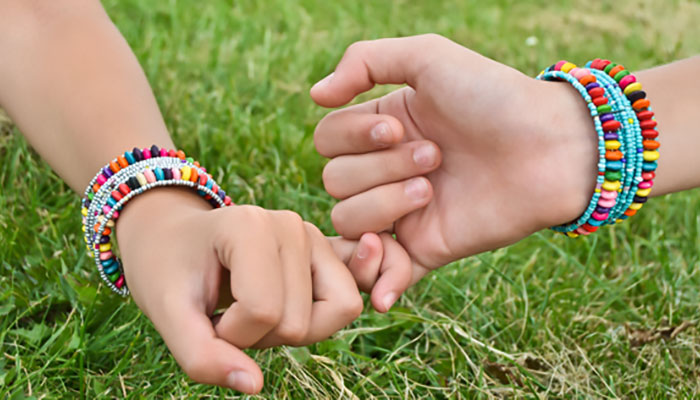Read the detailed description of Quest's Summer Camp information!
Read Our Latest Announcement!
I hope that this monthly installment of our newsletter finds you happy and healthy! Summer camp started on Monday and we have so many amazing kids who are already reaching so many cool achievements–it is truly exciting! We are still accepting our final campers! Register NOW to reserve your spot!!!
Summer Camp Dates are:
June 27th to August 11
at the Central Library in Huntington Beach
This issue of our newsletter is about how to help children build stronger friendships that last. At Quest, we are proud to provide an innovative treatment program through our therapeutic summer camp and school year therapy groups that have been proven to reduce problem behaviors not only at camp, but in school, at home, and in everyday life.
We hope that our newsletter will be a source of support and applicable information to improve the lives of the amazing children and families in our community.
Sincerely,
Jodie Knott, Ph.D.
Director and Licensed Psychologist
Quest Therapeutic Camps of Southern California
Helping Children to Build Strong Friendships that Last
Helping children to build strong friendships that last is an important issue and often a huge concern for parents of children with social, emotional, and/or behavioral difficulties. Often parents’ hearts will break some for their children when they see their children struggling socially to make strong connections with others. While there is no set system since all children are unique, there are often multiple strategies that can be used to help children develop the skills that they need to be successful with some of their peers.
The research demonstrates that for children with attention difficulties it is highly likely to struggle to make friends. In addition, when children with attention difficulties due tend to make friends it is typical for their friendships with others to have higher levels of conflict compared to their peers without attention difficulties. To me, making friends takes a large group of several skills, while there is a whole additional set of skills needed to maintain a friendship.
Typical skills that relate to children initially building friendships include:
- knowing how to enter a group
- observing social niceties such as saying “hello” and “goodbye” to someone and responding to another person if they try to greet you
- starting conversations with a peer
- being able to have a reciprocal conversation with someone in which the conversation goes back and forth between the two people
- playing games with the peer
Typical skills that relate to children successfully maintaining a friendship:
- still displaying a lot of the same skills that go into building a friendship
- having higher level conversations (especially for older children) in which you learn more about the other person, are able to switch topics to what a friend wants to talk about, or track details about the other person over time. For example: If a child learns that his new friend is going to the movies over the weekend, on Monday he could ask his friend several questions about the movie.
- being flexible in thoughts and actions
- using problem solving strategies
- giving the friend the benefit of the doubt if something doesn’t go as expected or has a negative outcome
- being able to give kind and appropriate feedback such as using “I statements” to communicate feelings, thoughts, and needs with the friend
Once you are able to figure out a couple spots where a breakdown is occurring for your child then it is possible to teach the needed skill and intervene as needed.
For example: If a parent knows that her child is not observing the social niceties and that this is critically affecting a child’s friendships the parent might do several things:
- discuss this behavior as an obstacle to overcome in order to help the child reach their goal to have more friends
- help the child realize that this is just a skill to be learned and that he or she is capable of learning the skill (even if it didn’t originally come naturally to them)
- teach, role play, and model the behavior you would like to see. In this case, it might be teaching what a child needs to do in this situation such as when someone says, “hello” that the expected behavior is to look up, give the person eye contact, and say “hello” back. Sometimes parents will role play prior to a social event to help their child be ready or just prime him or her by saying things like, “Today when you go over to Johnny’s I know you are going to have a great time. Remember to say “hello” when Johnny or his mom opens the door since friends like that. You have done a great job in our role play and I know you will do a great job.”
- provide children with bonuses for trying a new skill or behavior. The larger the skill you are trying to teach, you might have to break it down into components and reward for each part.
At Quest, I feel very lucky to see children grow in leaps and bounds in their friendships with others since with our individualized goal structure, built in feedback points and rewards we have a whole system to try and enact change in this area. We work hard to create a safe place for children to take social risks with support to build their social skills since often these skills get better with practice. It is exciting as well since we are able to help children further develop their problem solving and emotion regulation skills that really help them to maintain the friendships that they build.
Helping your child build the component skills of making and keeping friends is important. Even just being able to build one friendship can be critical and can act as a protective factor in the life of a child. Luckily, there are a ton of teachable skills that can be broken down and taught to children to set them up for success in their friendships.
UPCOMING PROGRAMMING
School Year Programming
School year therapy groups are ten-week afternoon therapeutic groups that are designed to provide therapy by specifically targeting individualized goals for our campers.
A minimum of one hour includes therapeutic activities that heavily target the development of social skills, emotion regulation, and positive behaviors, while the next hour focuses on further skill development by providing a variety of experiential activities as part of a group to create opportunities to observe the child in a natural setting and intervene to facilitate change. Some quarters provide a special emphasis to improve skills, while other quarters have a more general offering based on the campers’ interests and often include programming in areas such as video game making, drama, art, movie making, etc.
Winter Group Dates are:
January 4th – March 8th
Wednesday Evenings 5:30 to 7:30
at the Central Library in Huntington Beach
Summer Programming
Quest’s intensive summer program offers 7 weeks of programming (6 weeks of day camp and 1 week of residential). The summer program includes individualized behavior plans, group therapy, occupational therapy, a social thinking curriculum, mindfulness activities, yoga, soccer, games in the park, and field trips (beach, boomers, rock climbing, ropes course, bowling, etc.) to create a fun and engaging, therapeutic camp experience for children.
Weekly parent meetings are also included. The summer program has been found across multiple studies to significantly reduce hyperactivity, impulsivity, aggression, and inattention, while improving peer relations, family relations, athletic competency, behavioral control and self-esteem. Quest has also been found to improve social awareness, social cognition, social communication, and social problems.
Summer Camp Dates are:
June 26 through August 10th

